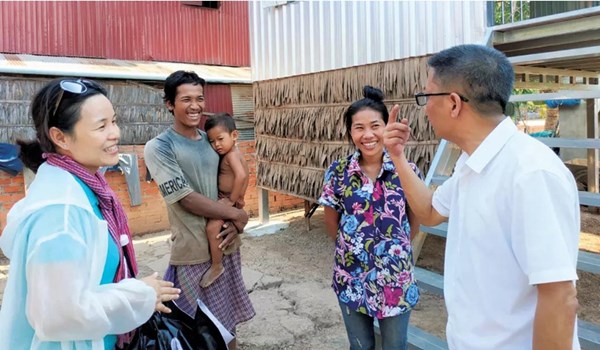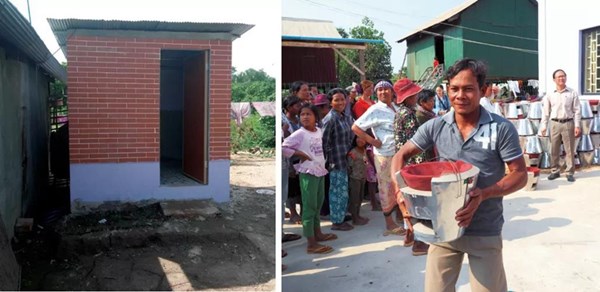Celebrating 100th anniversary of CPC | Poverty reduction program brings hope for better life to Cambodian people
Editor's Note: To celebrate the centenary of the founding of the Communist Party of China (CPC) this July, China International Development Cooperation Agency (CIDCA) has selected 100 representative stories of the country's foreign aid to support the development of other developing nations over the past years. This episode tells the stories of a Chinese delegation of experts who travelled to Cambodia and helped local impoverished people sustain their lives independently.
China solemnly proposed the East Asia Cooperation Initiative on Poverty Reduction during the 17th ASEAN-China, Japan and the Republic of Korea (ROK) Leaders' Meeting (10+3) held in Naypyidaw, capital of Myanmar, on Nov 13, 2014, with the aim of promoting poverty relief in rural regions and building demonstration points for the cooperation on poverty alleviation in East Asia.
The Chinese government made a decision to implement a technical assistance program on poverty reduction under the initiative in Cambodia, Laos and Myanmar in 2015.
A delegation of Chinese experts consequently went to two poverty-stricken villages in Kandal Province of Cambodia to conduct the poverty reduction program there in February 2017.
The Chinese delegation proceeded from local conditions and drew lessons from their successful experience back home to adopt multiple measures, which included the construction of infrastructure and public services facilities, the improvement of people's wellbeing and capacity building, and the access to technical assistance, in a move to lift the two villages out of poverty and better meet the development needs of local residents.
Their efforts received high acclaim from local Cambodian people and many touching stories took place during their stay in Cambodia.

Two Chinese experts talk with local people about specific difficulties in their life during a door-to-door visit in 2017.
To have a thorough understanding of the actual conditions of local impoverished people, Chinese experts held several meetings with local grassroots officials, talked with them about candidate plans for poverty reduction, and conducted door-to-door visits in the hot weather of August and September of that year.
There were 136 impoverished households in the two villages, which had no reliable access to safe drinking water, suffered shortages of food, had no money to pay for electricity, and lost their farmlands. In addition, some of the families had no safe living places and relied on firewood as a main source of energy.

The photo on the left is a new toilet built by the Chinese expert team for local people. The one on the right is a scene of local people moving into their new house.
In response, the Chinese delegation built hygienic toilets for 100 households, connected 80 families with electricity and distributed kitchen ranges to all targeted households.
Moreover, they also built new houses for 42 households living in severe poverty and started to renovate the houses for 178 impoverished families.
Seeing the completion of the new houses in their villages, local recipients were at first puzzled whether they were actually allowed to enter and live there.
After learning of their concerns, the Chinese experts explained to them that they were the owners of these houses.
Meanwhile, the Chinese delegation formulated targeted and precise plans of assistance in accordance with different conditions in each family.
For instance, they guided a beneficiary family to grow economic crops, helped its members rebuild their living rooms and kitchen, and supported them to raise cattle.
With the financial assistance of the Chinese delegation, another impoverished family opened a grocery store in their home, which raised the household's average monthly income by $60 to $120.
All those Cambodian recipients have attributed the noticeable improvement of their living standards to China's proposed cooperation initiative on poverty reduction, which has enabled more ordinary people in the southeastern Asian country to feel bilateral friendship.

Follow us on WeChat
京ICP备18041594号-1
京公网安备 11010202005508号

Follow us on WeChat


